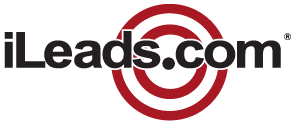On closing day, you’ve signed the papers and the house is officially yours. Unfortunately, the costs of buying a home don’t stop there. There are a host of closing costs that are involved in the process of purchasing property. The last thing you want to be is flat broke during closing, so you need to budget accordingly.
Below is a list of costs that are involved with closing on a home. The costs may vary depending on where you live, so be sure to talk to your lender, real estate agent and settlement company to get a more specific idea of the fees.
• Escrow fees– These are paid to cover the cost of handling all of the purchase-related documents and funds. They can range from several hundred to a thousand dollars and up. Escrow fees are not regulated by the state, and fees vary from county to county.
• Loan charges- These fees can be up to 3 percent of the amount of the loan. Lenders charge fees for many things like preparing your loan document and appraising the house. They may also charge a loan-origination fee. The seller may be willing to work with you on these loan-closing fees.
• Homeowners insurance- You must prove that you have adequate homeowners insurance in order to get a mortgage. The cost depends on the type of coverage you want as well as the value of your home, and you are usually required to pay for a year’s worth of coverage.
• Property taxes- Based on the home’s price and the escrow closing date, property taxes can cost up to a few thousand dollars. Also, you might be required to reimburse the buyer for any property taxes they may have paid in advance.
• Inspections- Since you should never buy a home without getting an inspection, this fee is rather important. The price depends on the size of the property and type of inspection, but costs typically range between a few hundred to a thousand dollars.
• Private mortgage insurance- PMI is required by many lenders if you put down less than 20 percent on your home. Basically, it protects the lender should you default on your loan. You can avoid this charge by putting a bigger down payment on the property.
• Prepaid loan interest- This is a fee that is charged to cover the interest from the date your loan is funded up to one month prior to your first scheduled loan payment. The amount of the interest all depends on timing.
• Other smaller fees- These miscellaneous costs include recording fees to record the deed and mortgage; notary fees; and courier fees.
Closing costs can pile up quickly. It makes sense to be prepared for the above charges so that you can properly budget for them after closing day. Proper planning can help you to avoid being in a bad financial position just after buying a home.
Consider getting a free home valuation report from Neighborhood IQ to find out your home’s worth shortly after closing to find out how much of an investment you have made in the big step of buying a home. Also, the Home Loan Advisor can analyze your property, current market conditions, local market comps, and other variables in our proprietary algorithm, and match you with potential lenders.

